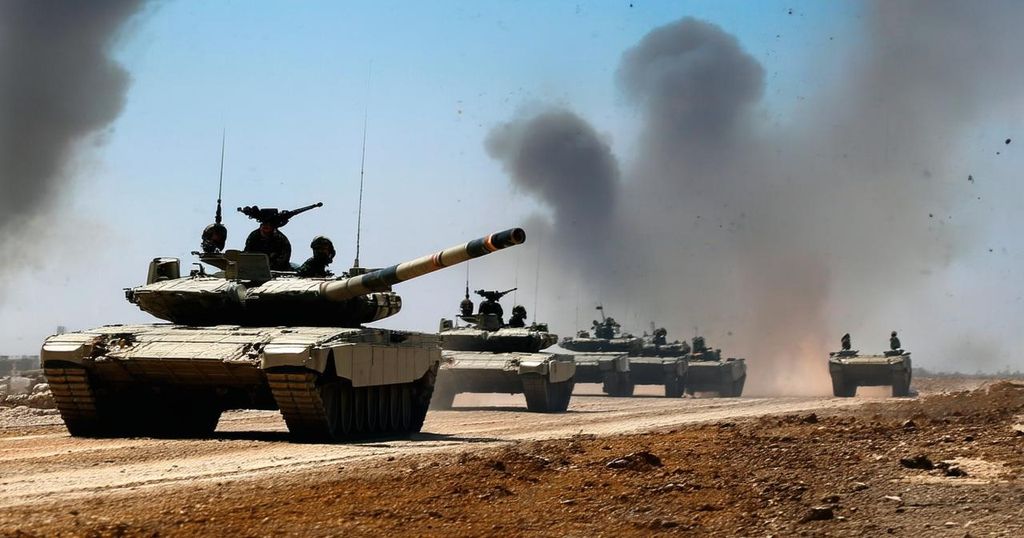Turkey Strikes Kurdish Regions Following Deadly Ankara Attack

Turkey executed airstrikes on Kurdish-controlled regions in Syria and Iraq in retaliation for an attack on a defense firm in Ankara, which left four dead. The Syrian Democratic Forces reported 12 casualties and attributed the strikes to Turkey’s targeting of so-called terrorist locations. The incident highlights the ongoing conflict between Turkey and the PKK, with implications for U.S. involvement in the region and possibilities for dialogue with PKK leader Abdullah Ocalan.
Turkey conducted airstrikes on Wednesday night targeting Kurdish-held regions in Syria and Iraq, following a deadly assault on a state-owned defense facility in Ankara. This incident involved at least two attackers who claimed the lives of four individuals and injured several more. President Recep Tayyip Erdogan attributed the attack to the Kurdistan Workers’ Party (PKK), which has been engaged in a prolonged insurgency against the Turkish state. The airstrikes led to significant casualties, as reported by the Syrian Democratic Forces (SDF), who stated that 12 individuals, including two children, were confirmed deceased, while 25 others sustained injuries due to Turkish offensives. According to Turkey’s defense ministry, 47 targets labeled as “terrorist” locations were struck across both Syria and Iraq. SDF commander General Mazlum Abdi denounced these Turkish operations as indiscriminate, highlighting that civilian installations, including healthcare centers, were impacted. He affirmed the SDF’s commitment to defend their population and territory despite the strikes, urging for dialogue instead. Approximately 900 U.S. military personnel remain in the region as part of the coalition against ISIS, with the SDF recognized as a primary ally on the ground. The U.S. government, however, had yet to comment on the Ankara attack or the subsequent Turkish military action by Thursday morning. The Turkish government perceives the SDF and its affiliated group, the People’s Protection Units (YPG), as closely tied to the PKK, which has a noted presence in northern Iraq. No group has claimed responsibility for the Ankara incident, coinciding with renewed negotiations between the Turkish government and Abdullah Ocalan, the imprisoned leader of the PKK. It was reported that Ocalan’s nephew has conveyed messages from him indicating a willingness to end the long-standing conflict, potentially opening avenues for dialogue and resolution.
The context of the article lies in the ongoing conflict involving Turkey and the PKK, which has a historical presence in Kurdish regions. The PKK has been designated a terrorist entity by both Turkey and the United States and has been engaged in violent confrontations with Turkish authorities since the mid-1980s. The recent attacks underline the complex dynamics in the region, particularly the interplay between the Turkish government, Kurdish forces, and U.S. military presence in Syria. The SDF has played a crucial role in combating ISIS but faces significant threats from Turkish military actions. The political discourse surrounding the PKK has also seen shifts, especially regarding potential negotiations with Ocalan, adding another layer to the intricate situation.
In summary, the Turkish airstrikes in Kurdish-held territories of Syria and Iraq represent a significant escalation following the assault on a defense facility in Ankara attributed to the PKK. The consequent fatalities and injuries reported by the SDF highlight the humanitarian impact of such military actions, while the continued presence of U.S. forces complicates the geopolitical landscape. The possibility of renewed dialogue surrounding the PKK suggests a potential opening for conflict resolution, yet the response from Turkish authorities remains predominantly militaristic in nature.
Original Source: www.cbsnews.com








